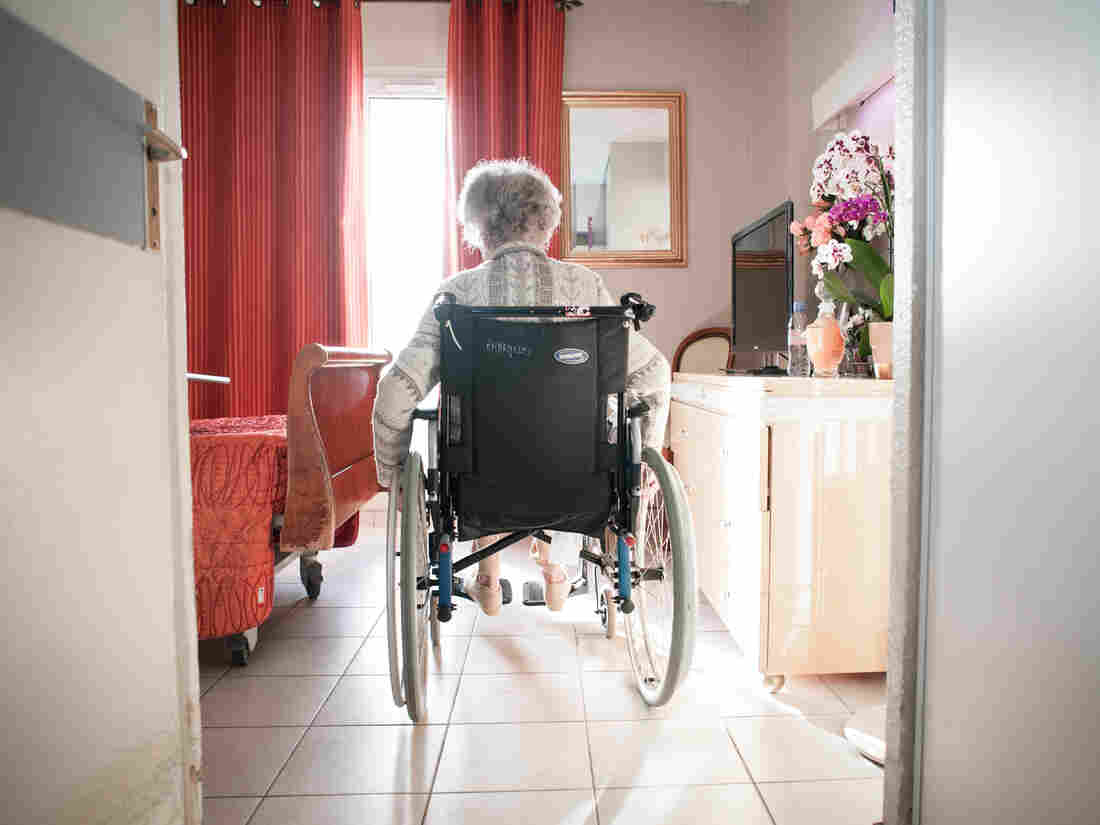At G20, Trade Disputes And A Presidential Tribute
The G20 summit in Argentina wraps up on Saturday. World leaders addressed trade disputes and also paid tribute to former President George H.W. Bush.
MICHEL MARTIN, HOST:
World leaders have been paying tribute to former President Bush at the G-20 summit in Argentina, which concludes today. NPR’s Tamara Keith has been there following President Trump in Buenos Aires, and she is with us now.
Tam, welcome. Thanks so much for joining us.
TAMARA KEITH, BYLINE: Glad to be with you.
MARTIN: How is President Trump responding to the death of President Bush?
KEITH: Well, he called his sons, George W. Bush and also Jeb Bush. And he spoke a couple of different times about former President Bush, saying very positive things about him.
(SOUNDBITE OF ARCHIVED RECORDING)
PRESIDENT DONALD TRUMP: He was just a high-quality man who truly loved his family. One thing that came through loud and clear – he was very proud of his family and very much loved his family.
KEITH: Trump also was supposed to have a press conference, as is pretty standard for leaders at summits like the G-20. He was supposed to have a press conference at the end. He decided to cancel that press conference, he says out of respect for Bush. The pool went into a meeting he was having with German Chancellor Angela Merkel and were able to get a couple of questions to him. But when a reporter asked him about past critical comments about Bush and others in his family and whether he regretted it, Trump didn’t answer. He said, thank you, press – time to go.
MARTIN: And it – is it our understanding that President Trump will attend services for President Bush?
KEITH: Yes. That’s what he has said. Additionally, he has declared a national day of mourning for Wednesday of this week – signed an executive order to basically shut the federal government down. Additionally, he is sending Air Force One to Texas to pick up the casket of President Bush and bring it back to Washington, D.C., for services. That is a standard thing that is done when a past president dies.
MARTIN: I did want to ask about the actual business of the G-20 if we could talk about that for just a few minutes. Did this meeting have a goal? And did the participants reach it?
KEITH: These meetings often have many goals, and one thing in particular stands out. They were able to come to consensus – which isn’t always the case – on a communique, sort of a statement of principles that all of the countries agree to. But there was one section where all of the countries agreed to continuing forward with the Paris climate accord. And one country – the United States – had a special section describing why it was not participating in the Paris climate accord. And that was necessary to be there in order to get President Trump to be willing to sign onto this communique.
MARTIN: And did President Trump have a specific goal for this meeting, and did he and the U.S. delegation do what they set out to do?
KEITH: Well, he seems positive about the trip. But in a lot of ways, it was like the incredible shrinking trip. He was supposed to meet with Russian President Vladimir Putin. Then, at the last minute, on the way out, he canceled that trip. There was no press conference, as had been planned. There were other meetings that had been supposed to be formal, bilateral meetings that then became less formal, pull-aside meetings.
And there were a number of occasions where the White House had to sort of bat down rumors or statements that were coming from Saudi Arabia and from Russia about things that President Trump had said or conversations he had had with their leaders – the White House having to come and say, oh, well, it was just a quick thing at dinner, or they only exchanged pleasantries.
MARTIN: That is NPR White House correspondent Tamara Keith traveling with the president.
Tam, thank you.
KEITH: You’re welcome.
Copyright © 2018 NPR. All rights reserved. Visit our website terms of use and permissions pages at www.npr.org for further information.
NPR transcripts are created on a rush deadline by Verb8tm, Inc., an NPR contractor, and produced using a proprietary transcription process developed with NPR. This text may not be in its final form and may be updated or revised in the future. Accuracy and availability may vary. The authoritative record of NPR’s programming is the audio record.


